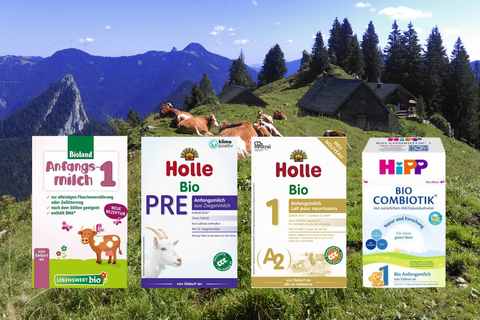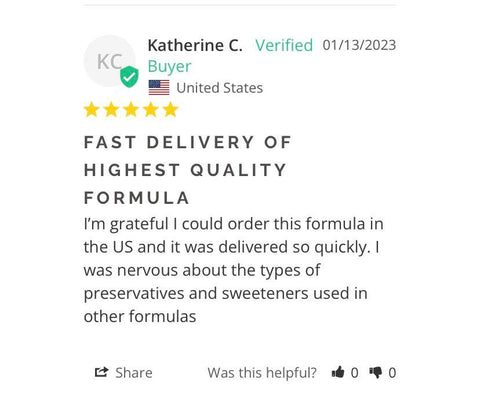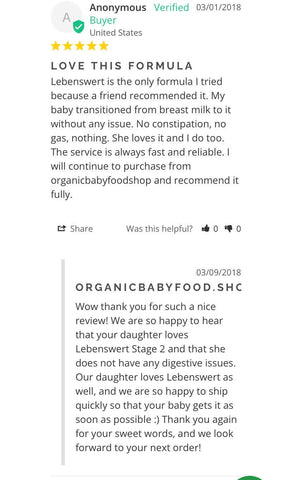As a new parent, nourishing your baby well is one of the most important tasks you will face. If you choose to formula feed, there are so many formula options tailored to meet specific nutritional needs. You may however experience some struggles related to formula feeding and today, we are going to address the most common issues and provide some easy solutions!

1. Select the best bottle
One of the first steps to formula feeding is finding a bottle that is suitable for your baby. Choosing preferences based on whether you prefer glass or plastic bottles, how easy the bottle parts are to clean along with the style of nipple on the bottles are all important factors to consider. Sometimes, a little bit of trial and error will help you to narrow down which particular bottle your baby likes the best. Regardless of which bottle brand you choose to go with, one of the biggest considerations to take into account overall is how well your baby can latch to the nipple. Afterall, you want them to be able to get to the formula nutrients inside of the bottle. To do this, ensure that the nipple flow is not too fast or too slow while feeding. We recommend paying close attention to your baby as they drink to be sure they are keeping up with the milk flow. If you notice baby really struggling to get any milk out, perhaps they need a nipple that offers a faster milk flow. If, however, you see them choking a bit and formula dripping down their mouth and neck, consider switching to a slower flow nipple. Additionally, take note of how well they remained latched to the nipple during the feeding. All of these things will contribute to a comfortable bottle feeding!

2. Choose the right formula
Selecting the right formula for your baby is vital for their overall health! Consider dietary needs as well as any conditions you might be hoping to address such as colic, gas, dairy sensitivity, and so on. Here are a few great formula options to consider based on your baby's individual needs:
- Lebenswert Formula for Babies | Lebenswert Bio Organic Infant Formula - Organicbabyfood.shop: This premium quality, organic formula is packed full of nutrients and is held to the very best standards to offer top quality nutrition, without the yucky additives. Free from artificial ingredients. preservatives, corn syrup, cane sugar, gluten and soy, this formula is a high-quality pick!
- Holle Organic Infant Formula in U.S. | Most Recommended Baby Formula - Organicbabyfood.shop: Made with raw ingredients using biodynamic and organic agriculture practices, this formula is high quality and is tailored to your baby's unique nutritional needs as they grow.
- HiPP Organic Baby Formula Online | Buy HiPP Baby Food in the U.S. - Organicbabyfood.shop: If you are hoping to address common digestive issues such as colic or reflux, this formula is made to do just that.
- HiPP Combiotic Hypoallergenic Formula | Best Formula for Milk Allergy - Organicbabyfood.shop: If you are in need of a formula that is free from wheat, eggs, nuts or otherwise common allergens, this a great option.
- Lebenswert Formula for Babies | Lebenswert Bio Organic Infant Formula - Organicbabyfood.shop: This premium quality, organic formula is packed full of nutrients and is held to the very best standards to offer top quality nutrition, without the yucky additives. Free from artificial ingredients. preservatives, corn syrup, cane sugar, gluten and soy, this formula is a high-quality pick!
- Holle Organic Infant Formula in U.S. | Most Recommended Baby Formula - Organicbabyfood.shop: Made with raw ingredients using biodynamic and organic agriculture practices, this formula is high quality and is tailored to your baby's unique nutritional needs as they grow.
- HiPP Organic Baby Formula Online | Buy HiPP Baby Food in the U.S. - Organicbabyfood.shop: If you are hoping to address common digestive issues such as colic or reflux, this formula is made to do just that.
- HiPP Combiotic Hypoallergenic Formula | Best Formula for Milk Allergy - Organicbabyfood.shop: If you are in need of a formula that is free from wheat, eggs, nuts or otherwise common allergens, this a great option.
-Organic Goat Milk Infant Formulas - Organicbabyfood.shop- Goat milk formula is a great choice if your baby has a sensitivity to cow's milk. It is gentle on baby tummies and it is easy to digest.

3. Address digestive issues
If your baby is spitting up a bit more than normal or showing signs of discomfort after a feeding (arching their backs, fussing a lot, visibly uncomfortable, throwing up), here are a few tips. First, rule out bottle and formula issues that were discussed above. Next, be sure you are burping them enough through their feeding session. Hold them upright during and after their feeding and be sure to stop after every couple of ounces to burp them. Pay attention to their feeding cues to ensure they are not overeating or undereating. Babies who have a comfortably full tummy will be calm and often doze off easily. You may even notice their little hands comfortably open opposed to being clenched in a fist. If you have considered all of the issues above yet are still unable to identify the root cause of your baby's discomfort, talk with their pediatrician.

4. Address Feeding Issues
If your baby is refusing to accept their bottle by turning away from the nipple, take into account if they are just not hungry or if they need a different nipple. If you know they are hungry, yet they are struggling to latch after a few more tries, keep trying. If your baby was previous breastfed, taking a bottle requires some getting used to. If at any point during their feeding they stop and turn away, take it as a cue that their tummy is full and come back to the feeding session once they show further signs of hunger.

5. Ensure appropriate weight gain & keep track of dirty diapers
Your baby's doctor will keep track of their weight gain to ensure proper nutrition and growth. At home, paying attention to how often your baby requires a diaper change is another great way to take note of their formula intake. If your baby is not wetting diapers every 6-8 hours, this is a sign they are not getting enough to eat. If your baby is struggling to poop regularly, has blood in their poop, is excessively gassy or has diarrhea, these are all signs that their body is not responding well to their formula, and it may be time to try a different one.
6. Take note of rashes & skin troubles
When introducing a new formula, keep a close eye on any new rashes on their body or diaper area. While baby eczema and baby acne can be common and go without concern, the sudden onset of noticeable skin conditions can serve as a sign it is time to look a little deeper.
We hope that these points help you to navigate the road of formula feeding! Here are what parents are saying about the formula we offer.
We hope that these points help you to navigate the road of formula feeding! Here are what parents are saying about the formula we offer.




Have given any of these a try!? Let us know if so!
